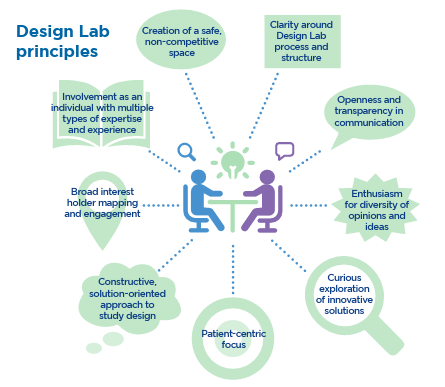
“The term ‘T.5’ highlights the bidirectional, interdisciplinary, and intersectoral nature of preclinical R&D, and the role that testing and optimization in this phase has on outcomes at T1 and beyond. The Tufts CTSI T.5 program brings resources and perspectives to shift the focus from translation to transformation.”
Elazer Edelman, MD, PhD, SM, SBDirector, T.5 Capacity in Medical Devices
Overview
The T.5 Capacity in Medical Devices (T.5) Program, housed at MIT, addresses the challenges of bridging critical translation from preclinical development to initial human studies. The T.5 program facilitates research teams at the early, preclinical research and development stage (T.5) to efficiently turn device concepts into testable prototypes and effectively incorporate clinical insights into the full span of preliminary research and development.
T.5 services include the MIT Clinical Research Center (CRC), staffed with specialized research nursing and research technicians to provide direct support for conducting pre-clinical, early phase human research, and proof-of-concept studies; study design and protocol development; device design and fabrication of prototypes; reconfigurable device test environments; regulatory consultations; specimen collection and processing; and training programs.
Who is eligible?
The T.5 team, including the MIT CRC, provides consultations and support to investigators affiliated with Tufts CTSI partners and collaborators.
Consultations are free of charge; other services are typically fee-for-service.
Resources and Services
Clinical Research Center
General
- Experienced clinical research staff: RNs, NPs, MDs
- Research technicians
Pre-Clinical Support
- Proof-of-concept testing
- Computational simulation
- Animal models/tissue harvest
Early Human Participant Research
- Study planning/operationalization
- Regulatory consultation (IRB, FDA, etc.)
- Clinical standard of care test equipment and monitors
- Physiological monitoring (rest, exercise)
- Metabolic/neurobehavioral monitoring
- Specimen collection and processing
T.5 Translational R&D Laboratory
- Translational design specifications
- Clinical application identification
- Device design
- Prototyping (minimally viable prototype to clinically testable systems)
- On-site mechanical equipment: CAD software, SLA 3D Printing, pre-clinical- and clinical-grade sterilization, precision machining tools, industrial inspection stereoscope
- On-site electrical equipment: Sensor connectivity using a National Instrument PXI Platform with varied monitoring and control functions (e.g., oscilloscope, multiplexers, network analyzer, wireless support)
- Manufacturing access
- Medical device Good Laboratory, Manufacturing & Clinical Practice training (GLP, GMP, GCP)
- Test environments for medical sensor evaluation
- Reconfigurable equipment (e.g., retrofit ICU bed, surgical table, at home settings)
- User control of physical parameters (e.g., noise, light, vibration, interference)
- Support first-in-human to clinical sites transitions
- Regulatory consultation (IRB, FDA, etc.)
T.5 Navigators also help Tufts CTSI partners and collaborators to locate and gain access to makerspaces, fabrication facilities, imaging, and other engineering/scientific/clinical study support at MIT.
Contact
To contact us, please submit a service request.
Elazer Edelman, MD, PhD, SM, SB, Director, T.5 Capacity in Medical Devices
Brian Anthony, PhD, Associate Director, T.5 Capacity in Medical Devices; Medical Device Lead
Catherine Ricciardi, DNP, ANP-BC, Associate Director, T.5 Capacity in Medical Devices; Director of Clinical Research Operations



